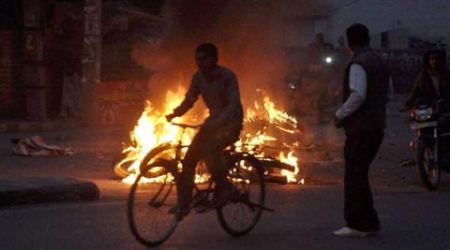 The first central OBC list was a compromise between the list of OBCs in the Mandal Commission Report (1980) and the various state lists that existed when the V.P. Singh government decided to implement the Mandal recommendations.
The first central OBC list was a compromise between the list of OBCs in the Mandal Commission Report (1980) and the various state lists that existed when the V.P. Singh government decided to implement the Mandal recommendations.
The Union cabinet’s decision to set up a commission to explore the creation of subcategories in the central list of the Other Backward Classes is a move in the right direction. It is in step with the proposals submitted by the Ministry of Social Justice and Empowerment, the National Commission for Backward Classes and a Parliamentary Standing Committee towards addressing grievances among OBCs regarding reservations in central government jobs and educational institutions. Many state OBC lists have subcategories and the system has, by and large, worked. Besides, there are no legal restrictions towards creating subcategories in the OBC list: The Indira Sawhney judgment (1992) states there is no constitutional bar to further classification of OBCs on degrees of social and educational backwardness.
The OBC is an umbrella category that, at the Centre, clubs together nearly 5,000 castes that are at different stages of social, political and economic advancement. It is a reasonable assumption that the better empowered castes in the OBC list have cornered the benefits of reservation to the exclusion of the rest. The creation of subcategories could go some way in addressing the problem. However, the subcategorisation needs to be done systematically and after rigorous scrutiny of the necessary data regarding income, education, employment etc, as required by the law. The process must be shielded from various pressure groups, considering that reservation is a politically fraught subject.
The first central OBC list was a compromise between the list of OBCs in the Mandal Commission Report (1980) and the various state lists that existed when the V.P. Singh government decided to implement the Mandal recommendations. To avoid political contestation, only castes common to both the lists made the cut. The Centre has since expanded the list, often including castes to meet political exigencies and courting controversy. The failure of the “creamy layer” concept to make reservations more equitable should serve as a lesson: Governments, under pressure from influential sections, have frequently raised the income bar to defeat the Supreme Court’s intervention to eliminate the well-off among OBCs from monopolising reservations.
As it happened after Mandal, creating OBC subcategories may force a reconfiguration of OBC politics and end the leadership role of certain dominant castes. Electoral politics has always underwritten affirmative action policies in India and, it will remain so unless there is substantial growth in opportunities for all. The reservation policy will be exhausted of its transformative possibilities at some point. The signs are already there in the Jat, Patel and Maratha mobilisations. The cake, surely, needs to be cut equally, but it also ought to get bigger.

